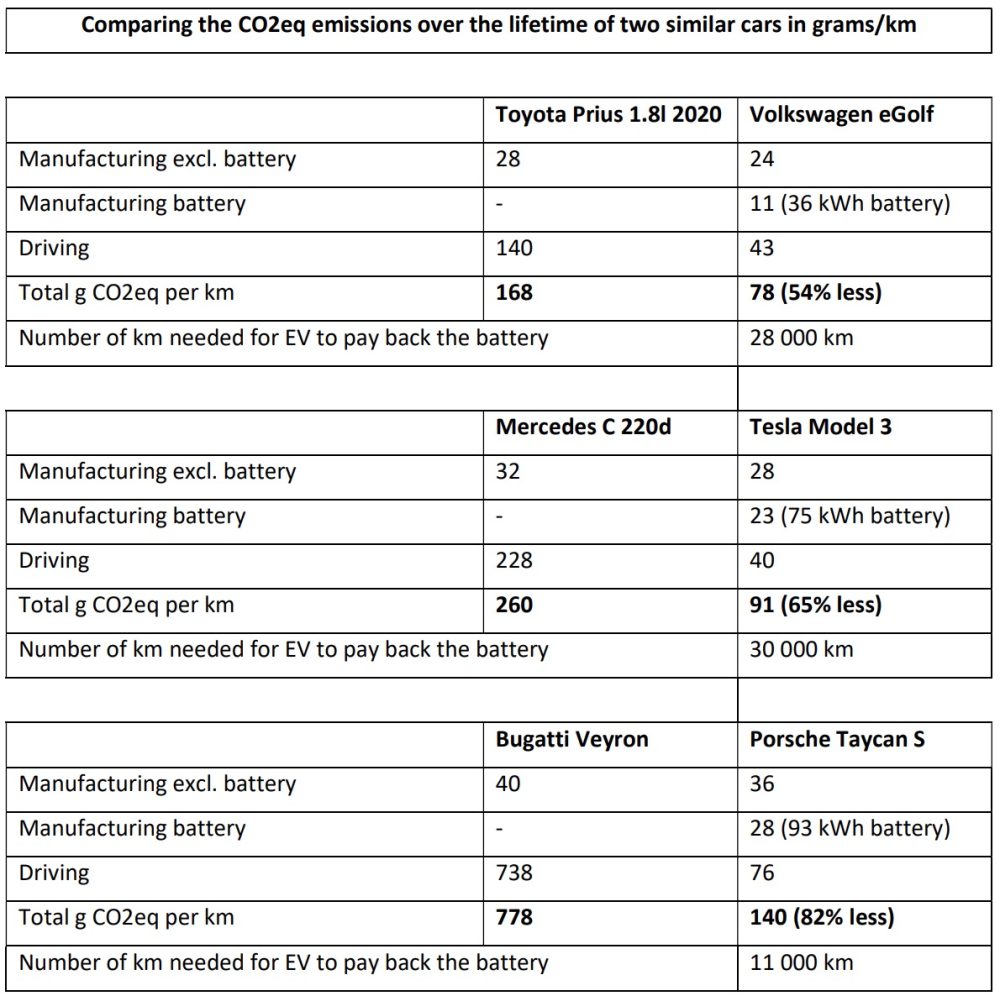
A new study looked into the lifetime emissions of electric vehicles versus gas-powered counterparts and concluded that Tesla Model 3 emits about 65% less lifetime emissions than the Mercedes-Benz C-Class.
For years, automakers and the fossil fuel industry have pushed the idea that electric vehicles are worse for the environment than diesel and gasoline-powered vehicles because they are powered by dirty electricity.
Such a study came out of Germany last year and it was highly cited in the media even though it had significant flaws and it was mostly debunked.
Now a new study coming from Eindhoven University of Technology broke down in detail the mistakes made in the original study and shows how electric vehicles produce less emissions over their lifetimes even after accounting for the production phase.
The new study has specifically highlighted 6 mistakes made in the studies finding that EVs emits more pollution than gasoline cars:
- Exaggerate GHG emissions of battery production
- Underestimate battery lifetime
- Assume electricity will not get cleaner over the lifetime of the car
- Use laboratory tests paid for by manufacturers themselves
- Exclude or downplay fuel production emissions
- Ignore the larger system
When it comes to the emissions from battery production, the researchers of Eindhoven University of Technology found some simple mistakes:
“Scaling up and smarter engineering (e.g. preserving heat in the manufacturing process) have dramatically lowered the energy that factories require to produce battery cells. At the same time the electricity used is steadily decarbonizing. All this is reducing the EV’s ‘climate backpack’ but many EV-critical studies ignore this. Examples are Buchal, Karl and Sinn, ADAC, ÖAMTC and Joanneum Research that assume battery production will emit 175 kg CO2 per kWh of battery. They base this on one highly controversial study from 2017. But this study was updated in 2019 and concluded it was now 85 kg CO2 per kWh of battery which halves the ‘climate backpack’ of the electric vehicle. Mazda published a paper in 2019 using even older numers. Based on a list of recent publications we assume a range of 40 to 100 kg/kWh with a mean of 75 kg/kWh.”
When correcting all the mistakes, the new study found that electric cars emit much less emission than comparable gasoline or diesel vehicles.
For example, they found that Tesla Model 3 emits about 65% less emissions over its lifetime than the Mercedes-Benz C-Class:

Here’s the study in full from Eindhoven University of Technology:
Author: Fred Lambert
Source: Electrek



